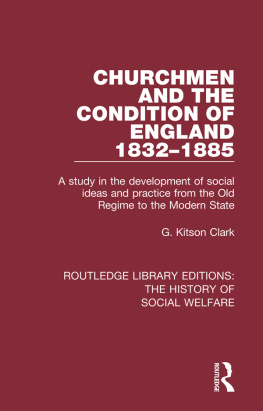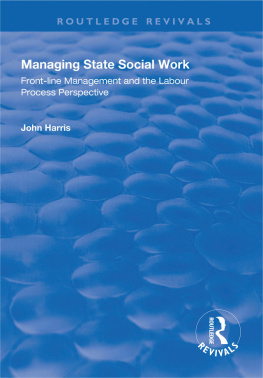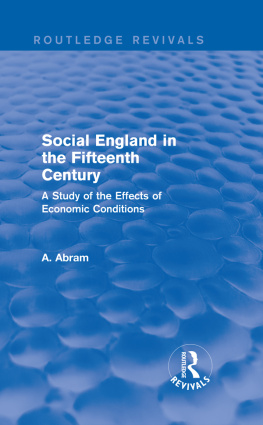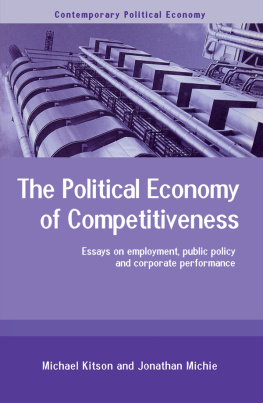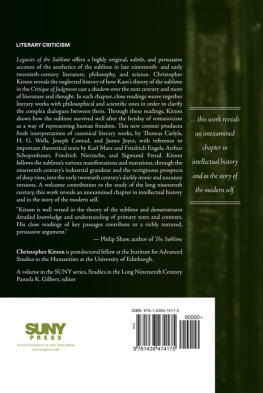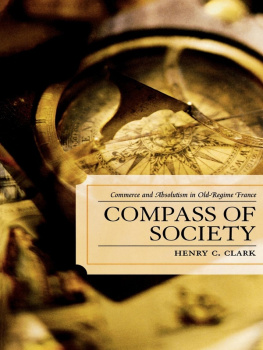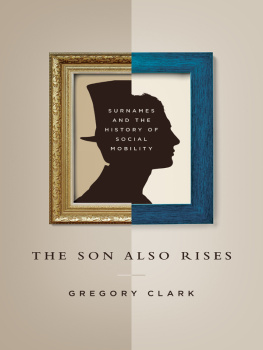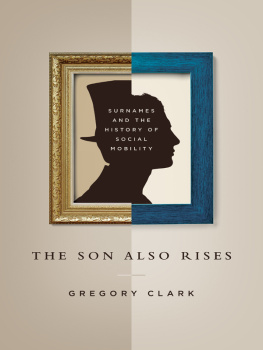ROUTLEDGE LIBRARY EDITIONS: THE HISTORY OF SOCIAL WELFARE
Volume 11
Churchmen and the Condition of England 18321885
First published in 1973 by Methuen & Co Ltd
This edition first published in 2017
by Routledge
2 Park Square, Milton Park, Abingdon, Oxon OX14 4RN
and by Routledge
711 Third Avenue, New York, NY 10017
Routledge is an imprint of the Taylor & Francis Group, an informa business
1973 G. Kitson Clark
All rights reserved. No part of this book may be reprinted or reproduced or utilised in any form or by any electronic, mechanical, or other means, now known or hereafter invented, including photocopying and recording, or in any information storage or retrieval system, without permission in writing from the publishers.
Trademark notice: Product or corporate names may be trademarks or registered trademarks, and are used only for identification and explanation without intent to infringe.
British Library Cataloguing in Publication Data
A catalogue record for this book is available from the British Library
ISBN: 978-1-138-20330-3 (Set)
ISBN: 978-1-315-45977-6 (Set) (ebk)
ISBN: 978-1-138-20489-8 (Volume 11) (hbk)
Publishers Note
The publisher has gone to great lengths to ensure the quality of this reprint but points out that some imperfections in the original copies may be apparent.
Disclaimer
The publisher has made every effort to trace copyright holders and would welcome correspondence from those they have been unable to trace.
Churchmen and the Condition of England 18321885
A study in the development of social ideas and practice from the Old Regime to the Modern State
G. KITSON CLARK
First published 1973
by Methuen & Co Ltd
II New Fetter Lane London EC 4P 4EE
1973 G. Kitson Clark
Printed in Great Britain by
Richard Clay (The Chaucer Press), Ltd,
Bungay, Suffolk
SBN 416 132405
Distributed in the U.S.A. by
HARPER & ROW PUBLISHERS INC.,
BARNES & NOBLE IMPORT DIVISION
Dedicated to Kings College London
and to
the Memory of F. D. Maurice
This book derives from three courses of lectures delivered at different dates for three different institutions. My warm thanks are therefore due to Kings College London, to Trinity College, Cambridge, and to Leicester University for inviting me to lecture, and to Kings College and Leicester University for very friendly hospitality while I was lecturing. Dr R. Robson of Trinity College, Cambridge, has read through the whole both in draft, and in proof, and Professor G. F. A. Best of Edinburgh University a large part of it, and I have gained much from their advice and criticism. I have also to thank Professor Chadwick for valuable assistance, and I owe much to Mrs Johnson for help in the laborious task of checking references. I am, however, alone responsible for what appears in this book, and all mistakes and mis-statements must be placed to my account.
I have gained permission to dedicate this book to Kings College, and I wish to associate this dedication with the honoured name of F. D. Maurice. As things turned out he did not come to occupy the central position in the book which at one time I thought he would occupy, but my work throughout has given me some idea of his stature and significance.
G.K.C.
July 1971
Note
Where in the footnotes reference is made to a work which has been cited already, the page reference within the square bracket refers to the page in this book on which the first citation can be found, the number outside and following the bracket to the pages in the work cited to which reference is made. Where the place of publication is not cited, the work was published in London.
As was said in the Preface, this book is the result of work originally begun when preparing for three successive sets of public lectures: the Maurice lectures delivered for Kings College London in 1960, the Birkbeck lectures delivered for Trinity College, Cambridge in 1967 and a course given in 1969 in Leicester for the Centre for Victorian Studies in the University of Leicester. But in each case after I had delivered the lectures I became dissatisfied with what I had said and came to the conclusion that more work on the subject was needed before I could consider publication. For this reason not only was each course substantially different from the one which preceded it, but my text differs considerably both in the material used and in its argument from what I said at Leicester.
From the beginning, however, my general objective has remained the same. I wished to explore the attitudes ofchurchmen that is of the clergy of the Church of England and of laymen who were consciously inspired by the principles and teaching of the Church of England to the social problems of mid nineteenth-century England, to what Carlyle called the condition-of-England question. Where I think I gained in perception was in seeing more clearly the nature of the relationship between the attitudes and actions of churchmen and the history of the development of the social policy of nineteenth-century England.
The period I have in mind stretches roughly from the First Reform Act in 1832 till the end of Gladstones Second Administration in 1885. Both dates are arbitrary; indeed it is part of the thesis of this book that the development in social theory and practice from the traditional regime that existed before 1832 to the democratic collectivist State which was taking shape after 1885 was in some ways continuous and unbroken, and that this continuity gives its significance to the part played by members of the established Church, particularly by the parochial clergy. However, if there was continuous development there was also continuous change, and there are two points in the history at which the process of change seems to be more rapid, significant and decisive than during the rest of the century. Each is associated with an act reforming the methods of election to the House of Commons. In each case this not only altered the structure and methods of politics, but was ideally important as symbolizing a change in political philosophy. In each case, however, even more important than the act itself is the change in social conditions and in opinion which made the act necessary, and with the acts reforming Parliament should be considered other acts passed at about the same time which also demonstrate what was happening.
The first of these points of change is associated with the First Reform Act, passed in 1832. The impact of that act and the significance attributed to it by contemporaries made it appear to be the beginning of a new chapter in history, a conception which was of considerable importance at the time. Its provisions also made important alterations in the methods of politics though those alterations were neither as extensive nor as decisive as many contemporaries believed, nor as historians used to assert. But the full significance of what was happening can perhaps only be judged if the act reforming Parliament is seen as one of a series of fundamental reforms. In 1828 the Test and Corporation Acts, which imposed disabilities on Protestant dissenters, were repealed. In 1829 Catholics were emancipated, largely as the result of pressure from Ireland. 1831 and 1832 were occupied by the crisis of parliamentary reform, but in 1835 the old municipal corporations were reformed, a measure which had wider social implications than are usually credited to it. After 1835 the pace slackened, and there followed about thirty years in which the old titled and proprietary classes, including the clergy of the established Church, still maintained both a decisive control over Parliament, and their tutelage over much of society. Nevertheless other groups had established a permanent right to a place in the commonwealth which they had not possessed before, and that fact was practically and theoretically significant.

